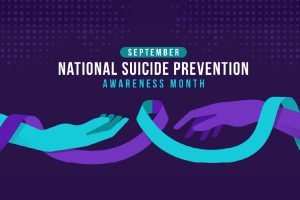“Do you think it’s even possible to co-parent with my narcissistic ex?”
My friend is going through a nasty separation with with the mother of his child. They are supposed to share custody, and he is supposed to see his son every other week. He tries to his son every other week; unfortunately, no court order has been issued to force his ex to comply with this schedule.
He is making every effort with his ex-partner to sort out parenting time amicably. After all, his son needs his Dad as much as my friend needs – and loves – his son.
I definitely believe there is no co-parenting with a narcissist. A narcissist has no empathy, uses the children as puppets, and manipulates the legal system to suit their own goals. They also attempt to alienate the empathic parent from their kids.
When kids are involved, it’s impossible to go full no-contact with a narcissistic ex, unless you are the primary caregiver. My friend thought a lot about filling that role, but in Montenegro, the odds are stacked against him – most people and the legal system largely believe that the child belongs with the mother.
All my friend can do now is to establish minimum contact with the ex-partner. A little history – throughout their time together, his ex was emotionally and physically abusive towards him, which is why he left in the first place. He couldn’t go to the Montenegro police as they would have laughed him out of the building, and may even resorted to calling him a “pussy.”
Every time my friend goes to see his son, his ex continues her abuse by calling him names, shouting at him, and demanding money – even though he is paying child support, without a court order telling him he needs to do that. She has also found a new partner – and she continually changes my friend’s scheduled visits with his son at the last minute. Of course, we can’t say that happens at her new boyfriend’s behest – I believe that she just enjoys manipulating my friend.
A fully executed, official court-ordered agreement might help my friend’s situation, but there are no compromises, agreements, or discussions when it comes to narcissists. They are tyrants.
Children born to people considered healthy parents are taught, encouraged, respected, and loved. Even if the couple doesn’t work out, healthy parents who have made their children the priority don’t lose sight of those traits. If, however, one parent is toxic, steps must be taken to reassure the children that one parent will always love and be there for them. The nurturing and respectful parent doesn’t have to justify their existence to the children, because they have shown their kids what it really means to “parent.”
Counterparenting. Sounds awful, doesn’t it? Because it is awful. Counterparenting is a dysfunction defined as when one parent actively works against the other – rather than setting aside differences to parent effectively.. My friend’s ex uses every possible opportunity to abuse, manipulate, and terrorize her child’s father. She isn’t teaching her child how to “be”; she is teaching him to get his way through aggression and control.
My friend experiences a great deal of anxiety when he sees his son or talks on the phone with him. His trauma at the hands of his ex renders him tongue-tied, and he doesn’t know how to act with his little boy. He is insecure about his parenting skills, and has no confidence in his ability to show love and guide his son to a more wholesome relationship with him..
Whenever he is alone, he re-analyzes and second-guesses his every move. He feels paralyzed, worried, and helpless. He is doubting himself as a parent.
- Did I say the right thing?
- Should have I said this at all?
- Should I have done this?
- Should I have not done this?
- How will it be used against me?
All of the abuse from his ex has wounded him, and now hie fiinds himself in the position of “trauma-parenting” – attempting to fix everything that his ex does with their son. He realizes that as a survivor, he has to figure out a way to co-parent with the narcissist, while healing from upsetting emotions caused by the same toxic person.
He always wished to be a good father. His own father left his family when my friend was just five years old. My friend created an image of the perfect father – fixer, doer, provider, protector, the rock.
But he isn’t perfect, none of us are. When he is portrayed as someone who he isn’t, he isn’t authentic in front of his child. What differentiates him from the fake persona of the toxic narcissistic ex? When he is himself a genuine person
He must stop investing so much energy into trying to do everything exactly right. There is no right or wrong. We all make mistakes. The only right way is to be authentic in front of our children; teach them it’s okay for them see you cry, be happy or sad, maybe even frustrated and angry.
Narcissists lack empathy – show your vulnerability to your children, let them express their own emotions, and be there for them when they feel upset, happy, annoyed, relaxed, or lonely. Be there for them ALL THE TIME.
My friend was an optimist, he hoped that there would be a time when he and his ex-partner would attend parent meetings together, discuss things regarding the child’s schooling, help each other with child care during work emergencies, or find a compromise for visitation over major holidays.
My friend was naïve.
He can’t parent with her; he can only “parallel parent.”
Co-parenting means that both parents are committed to raising their child with the child’s best interest at heart. The narcissist’s aim is to hurt, punish, and alienate you from the child.
When my friend wanted to take their son out of the country for an activity, she never gave him consent. As we have discussed already, she just wanted to prevent him from doing anything because she wants to control him – regardless of what is best for the child.
The only thing thing that you can do is forget about making decisions together. You have to “parallel-parent”. This entails:
- Do your best for your kids when they are with you. When they are with you – embrace them, and ask how their time was with their other parent. Do not badmouth the other parent and always validate their feelings.
- Teach them to trust their gut feeling. As an empath, you’ve survived the abuse and you know how it feels to be lied to and unheard. You must realize that you endured this to become the best parent to your kids because you can help them through the counterparenting.
- Learn to disengage. Do not engage with your children while they are with the narcissist. Don’t tell them details about your life that the narcissist can use against you. DO tell them they can call you anytime, but don’t pry too much. Every phone call is monitored and will be used against your child to make them feel guilty just for saying “I love you, Daddy.”
Do as much as you can individually and without arguments. Narcissists will use any event to create drama. Do not let them!
As soon as possible – find a therapist. Get involved in your child’s school – know their teachers, their friends, and their homework routine.. Keep consistency in your child’s life. Attend your child’s essential events, but stay away from the narcissist and their “flying monkeys.”
My friend hasn’t decided yet whether he will take his matter to court but he has started documenting everything: obstruction of contact, tardiness at school, and abusive messages/emails – but he isn’t placing much hope in the court. Family court represents a marvelous stage for the narcissist, who will use that “theater” to display their Oscar-worthy performance.
Of course, no one wants to go to court to have their future decided by people who are only serving a function. Avoid it if possible – but if you must, petition for full legal custody. This sends an important message to your children – that you love them, and that you’re willing to fight to stay in their lives.
Be prepared for false allegations, defamations, and a horrendous, deeply traumatizing process. The narcissist will use every unorthodox route to win the dispute; therefore, ask yourself this basic question: is it worth going to court while your child will suffer as a result?
The decision is, of course, yours. But please consider these issues:
- you are the only parent who can show your child that there is light at the end of the narcissistic tunnel;
- you are the only parent who will show your child what it means to love, to care, and to process the negativity of their other parent; and
- you are the only parent who can show your child what it means to be authentic.
When your child is with the narcissist, focus on your healing. But when they’re with you – be authentic, available, and vulnerable – and have some fun!
Be a rock to lean on, a shoulder to cry on, and a pillow to rest the head. Forever and always.







